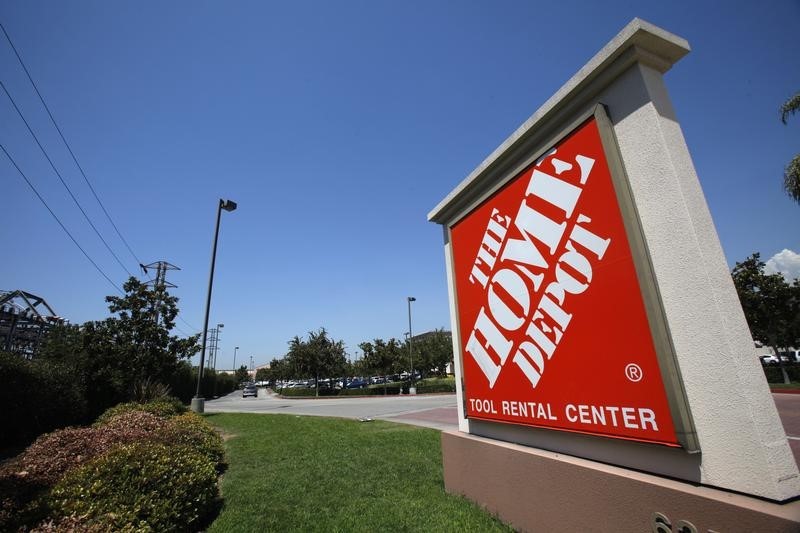Home Depot (NYSE:HD) reported better-than-expected second-quarter earnings and revenue on Tuesday but lowered its full-year outlook, citing weaker consumer demand for home improvement projects. The company's shares fell following the report, currently down around 0.8%.
The home improvement retailer posted adjusted earnings per share of $4.67, beating analysts' estimates of $4.54. Revenue rose 0.6% YoY to $43.18 billion, surpassing the consensus forecast of $42.6 billion. However, comparable sales declined 3.3%, with U.S. comparable sales down 3.6%.
Home Depot cut its full-year guidance, now expecting comparable sales to decline between 3% and 4%, compared to its previous forecast of about a 1% drop. The company also lowered its earnings per share growth outlook to a decline of 2% to 4%, down from its earlier projection of 1% growth.
"The underlying long-term fundamentals supporting home improvement demand are strong," said Ted Decker, chair, president and CEO. "During the quarter, higher interest rates and greater macro-economic uncertainty pressured consumer demand more broadly, resulting in weaker spend across home improvement projects."
The company now anticipates total sales growth of 2.5% to 3.5% for fiscal 2024, up from its previous estimate of about 1%, primarily due to the acquisition of SRS Distribution Inc. Home Depot expects SRS to contribute approximately $6.4 billion in incremental sales.
Despite the challenges, Home Depot maintained its gross margin guidance at approximately 33.5% for the year. The company also plans to open about 12 new stores in fiscal 2024.
Following the news, analysts at Stifel told investors in a note that they expected the shares to trade lower "given the softer underlying revenue performance with HD suggesting sales are not currently on trajectory to meet FY24 guidance."
Telsey Advisory Group said that while the company's performance may be close to bottoming, they "continue to believe we need to see completion and a bounce off the bottom for investors to gain more confidence."
TD Cowen was more optimistic, telling investors that despite the bigger cut, they believe the "guide is reasonable and likely only has little downside risk as the ongoing macro uncertainty and rate environment are driving a pullback in home improvement spend."
Analysts described it as a "noisy quarter," given the six-week sales contribution from recently acquired SRS.
"Nonetheless, the underlying trend is clear: higher interest rates & greater macroeconomic uncertainty pressured weaker spend across home improvement projects during the quarter," they wrote.
Analysts at RBC Capital said they like the idea of the bar being reset lower heading into FY'25, although investors will "likely have to look through several more quarters of underlying comp softness."
